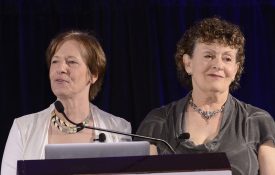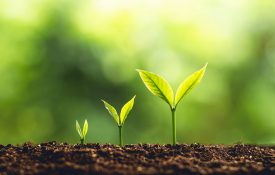-

Making Science ‘Edible’
Today, parents wanting the best for their children’s intellectual development can turn to a number of “educational” digital apps, a variety of “brain-based” teaching strategies and curricula, and a never-ending stream of videos, toys, games Visit Page
-
Lessons Learned From a Life in Science
APS Past President Michael S. Gazzaniga’s illustrious career as a researcher, an intellectual, and an advocate for science has led to his elections to the National Academy of Medicine and the National Academy of Sciences Visit Page
-

Portrait of Self-Control as a Young Process
A panel of regulation experts explains how the capacity develops from infancy through adolescence. Visit Page
-
The Social Powers of Primates
The biologist and primatologist Frans B.M. de Waal likes to show a video from the 1930s of two chimpanzees moving a heavy box. They pull in tandem. They break in sync. They’re the ape equivalent Visit Page
-
The Curse of Knowledge: Pinker Describes a Key Cause of Bad Writing
The more you know, the less clearly you write. That’s a simple way of summing up one of APS Fellow Steven A. Pinker’s key insights on the cognitive and psycholinguistic factors that fuel arcane, awkward Visit Page
-
Why Should Psychological Science Care About Diversity?
APS Fellow Robert M. Sellers has a novel way of encouraging psychological scientists to increase racial and ethnic diversity in their field: Make it all about the science. “Diverse perspectives, in and of themselves, are Visit Page

